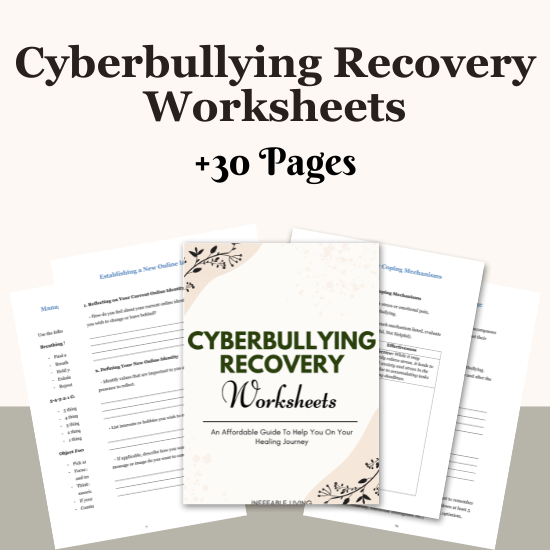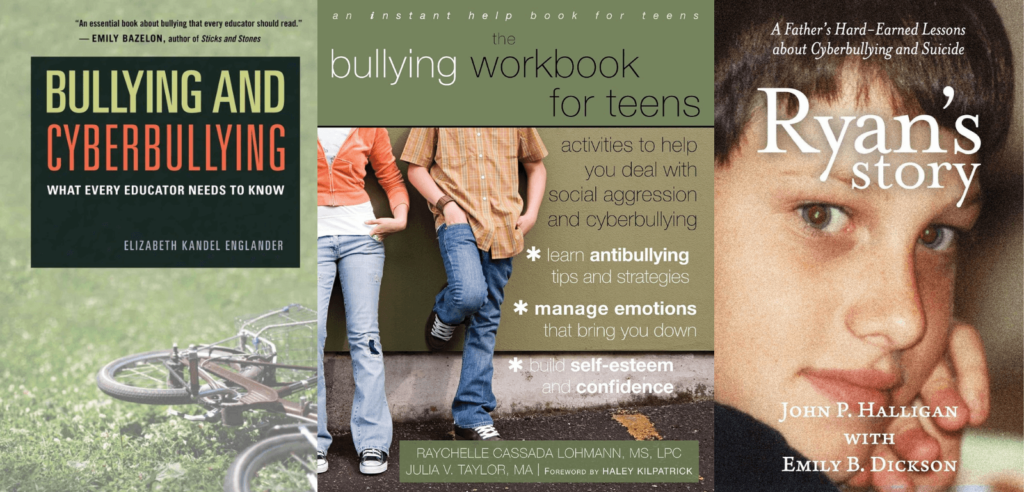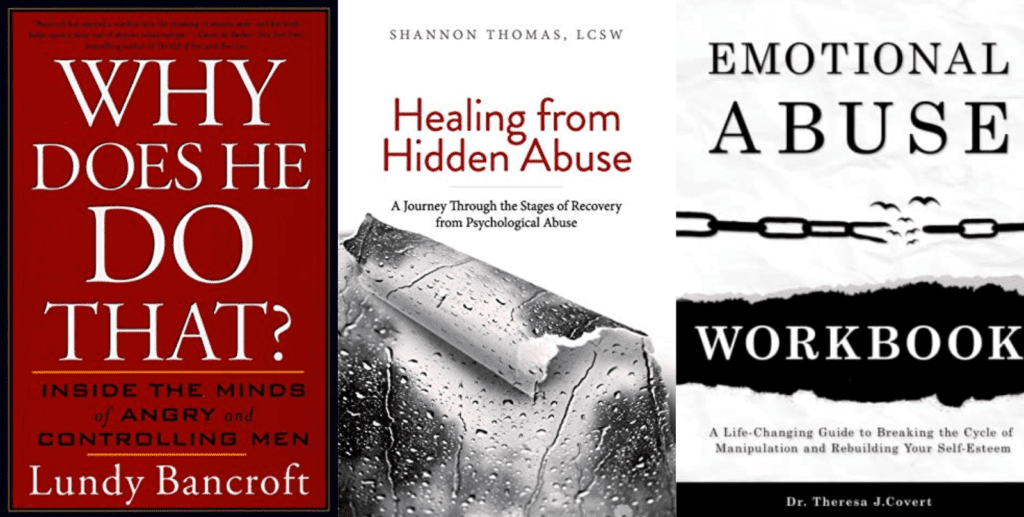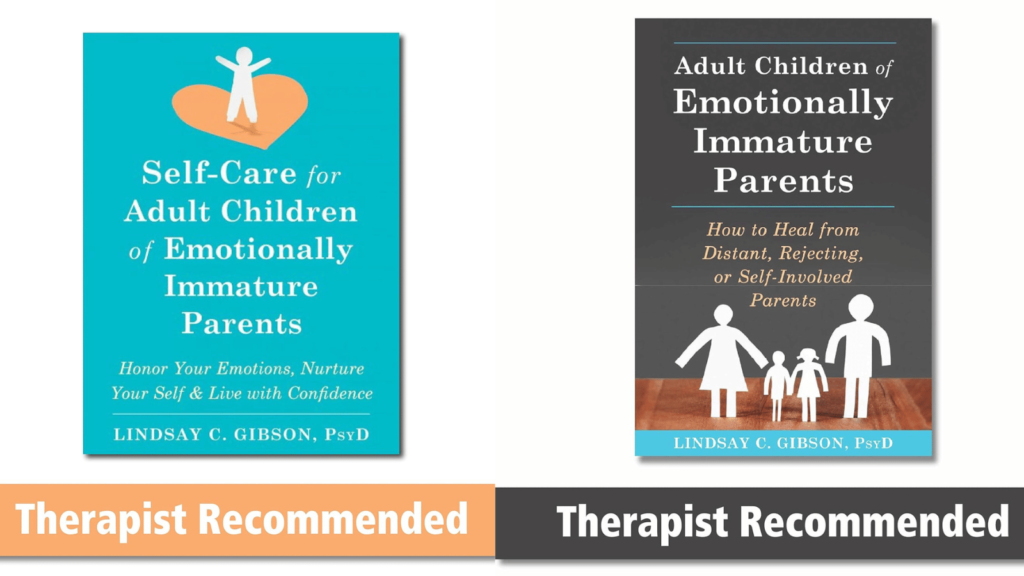This post contains a list of books about Cyberbullying to help you heal.
What Is Cyberbullying?
Cyberbullying is the use of digital technologies, such as social media, texting, emails, and online platforms, to harass, threaten, embarrass, or target another person.
It involves aggressive and unwanted behavior that is intentionally and repeatedly directed at an individual or group.
Unlike traditional bullying, cyberbullying can occur at any time and any place, as it doesn’t require physical presence; victims can be reached anytime they use digital devices, making it pervasive and hard to escape.
The anonymity provided by the internet can embolden individuals to say or do things they wouldn’t in person, often exacerbating the impact on the victim.
Books about Cyberbullying

1. Bullying and Cyberbullying: What Every Educator Needs to Know
by Elizabeth Kandel Englander
This book is a comprehensive guide for educators, providing a deep understanding of both traditional bullying and its digital counterpart, cyberbullying.
Englander offers practical strategies for prevention and intervention, making it an essential resource for creating safer school environments.
Related: Healing From Emotional Abuse In 12 Practical Steps

2. The Bullying Workbook for Teens
by Raychelle Cassada Lohmann PhD LPC, Julia V. Taylor PhD
An interactive and engaging resource for teens facing social aggression and cyberbullying.
Through activities and exercises, it helps young readers understand their experiences and develop coping strategies, empowering them to navigate challenging social dynamics.
Related: How To Stop Being Emotionally Abusive? Top 10 Strategies To Break The Cycle Of Abuse

3. Ryan’s Story: A Father’s Hard-Earned Lessons about Cyberbullying and Suicide
by John P. Halligan, Emily B. Dickson
A poignant and heart-wrenching account from a father who lost his son to suicide due to cyberbullying.
Halligan shares personal insights and lessons learned, aiming to raise awareness and prevent similar tragedies. It’s a moving call to action for parents, educators, and policymakers.
Related: Can Abusers Change? Top 17 Myths About Abusive Men That Make Women Stay With Abusers

4. Words Wound: Delete Cyberbullying and Make Kindness Go Viral
by Justin W. Patchin, Sameer Hinduja
This book tackles the issue of cyberbullying with a positive approach, encouraging readers to spread kindness online.
Patchin and Hinduja offer practical advice for teens on how to protect themselves and others from online harassment, making it a valuable resource for fostering digital citizenship.
Related: Healing From Childhood Emotional Neglect In 6 Steps (+FREE Worksheets PDF)

5. Teen Cyberbullying Investigated
by Thomas A. Jacobs
Jacobs explores the legal aspects of cyberbullying through real-life cases, helping teens understand the consequences of online actions.
The book is an eye-opener for young readers, emphasizing the importance of respecting others’ rights and the potential legal ramifications of cyberbullying.
Related: Top +25 Things Abusers Say To Their Victims

6. School Climate 2.0: Preventing Cyberbullying and Sexting One Classroom at a Time
by Sameer Hinduja, Justin W. Patchin
This book addresses the modern challenges of cyberbullying and sexting, offering educators strategies to improve school climate and promote responsible digital behavior.
Hinduja and Patchin provide actionable advice for creating a positive and safe learning environment in the digital age.
Related: Am I Being Verbally Abused Quiz

7. Bullying Beyond the Schoolyard: Preventing and Responding to Cyberbullying
by Sameer Hinduja, Justin W. Patchin
A thorough exploration of cyberbullying, offering insights into its impact on victims and guidance for prevention and response.
The authors combine research with practical advice, making it a must-read for educators, parents, and anyone involved in the lives of young people.
Related: Emotional Abuse In Relationships Quiz

8. Bullying: Online Harassment Guide for Prevention, Detection and Helping Victims to Recover from cyberbullying
by Clara Taylor
Taylor offers a straightforward guide to understanding, preventing, and responding to cyberbullying.
This book is geared towards parents and teachers, providing tools to detect cyberbullying and strategies to support victims in their recovery.
Related: Top 10 Journal Prompts For Narcissistic Abuse (+FREE Worksheets)

9. Cyberbullying Crash Course: Protect Your Kids from Cyberbullies, Cyber Violence, and Digital Peer Pressure
by Bjorn Beam
Beam provides a modern guide for parents to understand and combat cyberbullying.
The book includes practical tips for protecting children from online harassment and fostering open communication about digital dangers.
Related: Are You A Victim of Narcissistic Abuse Quiz

10. Bullying and Cyberbullying: How Parents and Teachers can Detect, Prevent and Stop Bullying, Implementing The Right Strategies
by Anna Maria Di Marzo
Di Marzo offers a comprehensive look at bullying in the digital era, focusing on detection, prevention, and intervention.
This book is a valuable resource for parents and educators seeking to create a bully-free environment, both online and offline.

How Books about Cyberbullying Can Help?
Books about cyberbullying serve as valuable resources for understanding, coping with, and overcoming the challenges associated with digital harassment.
They can help victims, bystanders, educators, parents, and others affected by or concerned with cyberbullying in several ways:
– Broaden Awareness: Books on cyberbullying delve into the complexities of online harassment, offering readers a deeper understanding of its forms, the psychology behind it, and its potential impacts on victims.
– Personal Stories: Many books include personal anecdotes from cyberbullying victims, providing real-life contexts that can foster empathy and a better grasp of the emotional turmoil experienced by those targeted.
– Practical Advice: Authors often provide practical advice for dealing with cyberbullying, including how to respond to bullies, protect oneself online, and seek help from authorities or support networks.
– Emotional Support: Through shared stories and expert insights, books can offer comfort to those feeling isolated by their experiences, reassuring them that they are not alone and that recovery is possible.
– Educating Youth and Adults: Books can serve as educational tools for children, teens, and adults, promoting digital literacy and responsible online behavior to prevent cyberbullying.
– Resource for Teachers and Parents: Educators and parents can use these books to understand the dynamics of cyberbullying, recognize signs of distress in young people, and learn how to support them effectively.
– Building Resilience: Readers can learn strategies for building emotional resilience, helping them to better withstand and recover from the effects of cyberbullying.
Conclusion
In summary, books about cyberbullying are crucial for spreading knowledge, offering support, and promoting actions to combat online harassment.
They provide valuable perspectives for understanding the issue deeply and act as guides for individuals and communities seeking to navigate the challenges of cyberbullying effectively.



